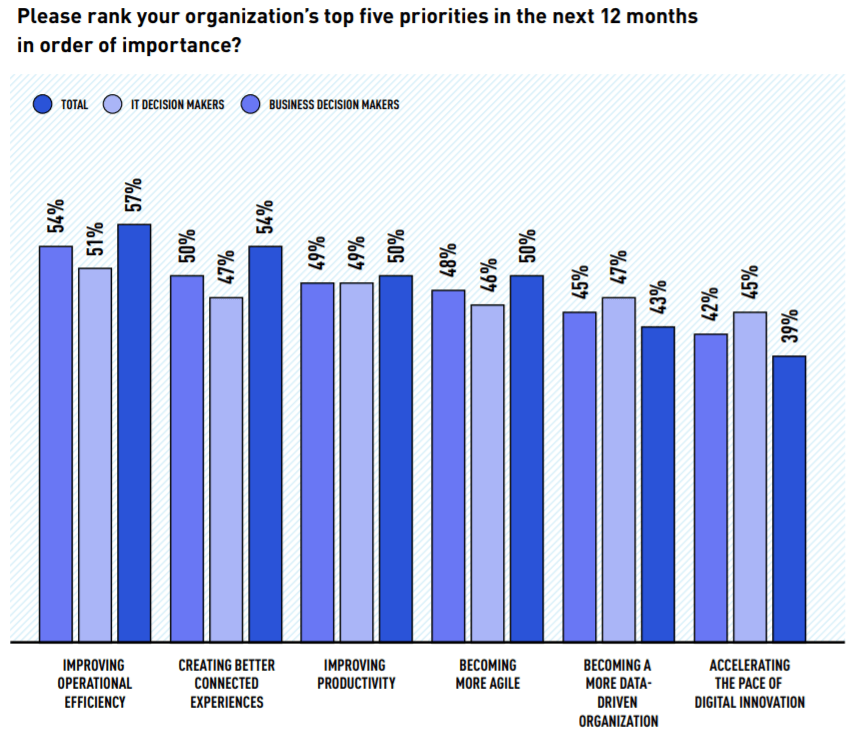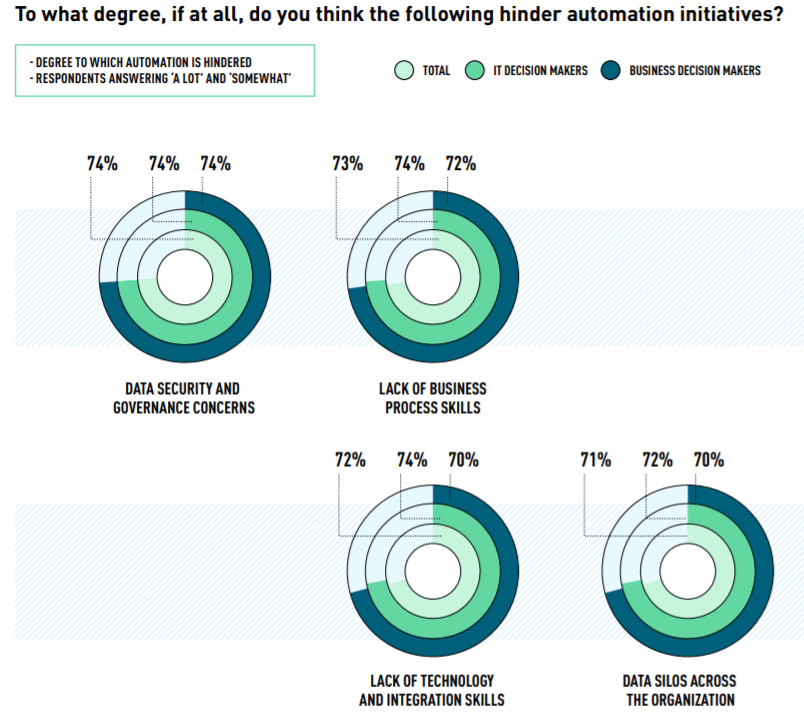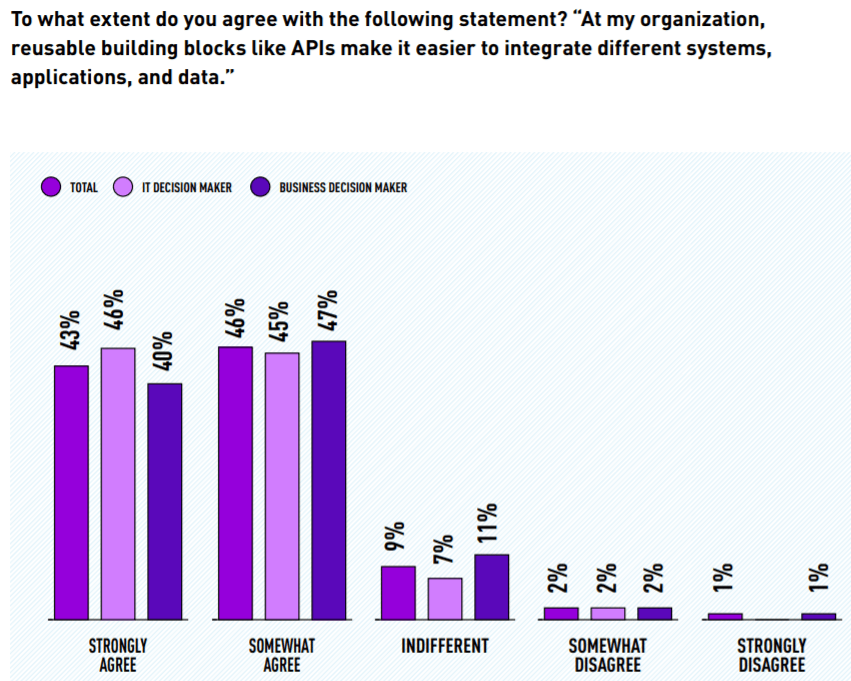COVID-19 forced the business world to put the brakes on ambitious out of the box digital transformation projects. Rather than harnessing technology to lift their value proposition, businesses were forced to drop what they were doing to migrate their staff to a work from home or hybrid work model.
Through this process, we’ve seen IT and business leaders work together to align their decision-making to improve productivity, efficiency and collaboration across the board. Leaders are now coming to comprehend the critical role IT plays in enhancing their own value proposition.
This new approach to decision-making has come with its own challenges. IT and business leaders alike are looking at automation and integration projects to achieve their goals, but concerns over data security are preventing them from seeing these initiatives through. By creating a central foundation of governance and taking an API-led approach to automation and integration, staff can feel secure knowing their data is safe even during integration.
Automation and integration are top business priorities
In MuleSoft’s IT and business alignment barometer report, we surveyed IT and business decision-makers to gauge their priorities and what roadblocks stand in the way of meeting those priorities. They told us that their top priorities were to improve operational efficiency, increase productivity, and innovate faster in the wake of the pandemic. Nearly all of them (99%) said automation was the path they needed to reach these goals.

Integration is just as critical to reaching these goals in enabling staff to work faster and deliver new services to customers. But as more systems require integration, every integration becomes more complex.
Security issues hold back automation and integration
While the majority of decision-makers acknowledged the importance of automation and integration, 66% of respondents said lingering data security and governance issues were holding them back from actually putting these plans into practice.

Behind security, the main obstacles holding automation back are data silos. Of those we surveyed, 85% of leaders said security concerns made non-technical users apprehensive about integrating their data with the rest of the company over fears their data could become compromised in the process.
These security concerns aren’t unfounded, as the rate of cyber attacks has only increased during the pandemic, especially ransomware attacks. A breach of private customer data is catastrophic for any business, but there are solutions for integrating data without risking a security breach.
What to do?
By creating a central foundation of governance, employees will have a single source of guidance. By creating this governance foundation within a single platform rather than different departments, the IT team can enforce these policies through “a single pane of glass”.
Businesses must be agile if they want to take this approach, so every employee has the same access to information, but only what’s relevant to them. Don’t give different information to different departments; rather, tailor your governance platform to keep everyone on the same page.
Taking an API-led approach to integration
Taking an API-led approach to integration will enable the rest of the organization to bring new services to market faster while reducing costs. What’s more, APIs are reusable for other functions across the rest of the organization, dramatically reducing the time it takes to integrate individual systems into your IT stack.
Reusable APIs are the key to ensuring even non-tech users integrate their data with the rest of the business, not just the IT team. This technology has given rise to “no-code” and “low-code” platforms that make way for a “drag-and-drop” approach to developing your APIs. Businesses can develop applications outside the IT team thanks to reusable APIs.

One MuleSoft customer that was considering integration is Melbourne’s Deakin University, which adopted an API-led approach to address the issues with its student management system (SMS). The existing system wasn’t fit for purpose, but there was no suitable replacement available, so the university decided to build an Applicant Portal instead.
Deakin’s developers previously considered APIs as another hurdle, but after building an initial 41 reusable APIs to cover areas like its curriculum, student applications, scholarships and contact information. The university has since reused 90% of these APIs, and now manages more than 150 APIs using MuleSoft.
One of the key concerns for Deakin was security, which is easily addressable with MuleSoft. Deakin’s API security and authentication is all handled with MuleSoft, and applications must be registered before using particular APIs.
Business and IT leaders need to work closely together to meet their goals and navigate this journey successfully. The pandemic created a shift in the way we work, but there could be more changes in the future. That’s why businesses need to prepare for the unforeseeable so that they’re prepared to take on any future challenges if they arise.
Want to learn more about how APIs can transform your business? Read the full IT and business alignment barometer report.









